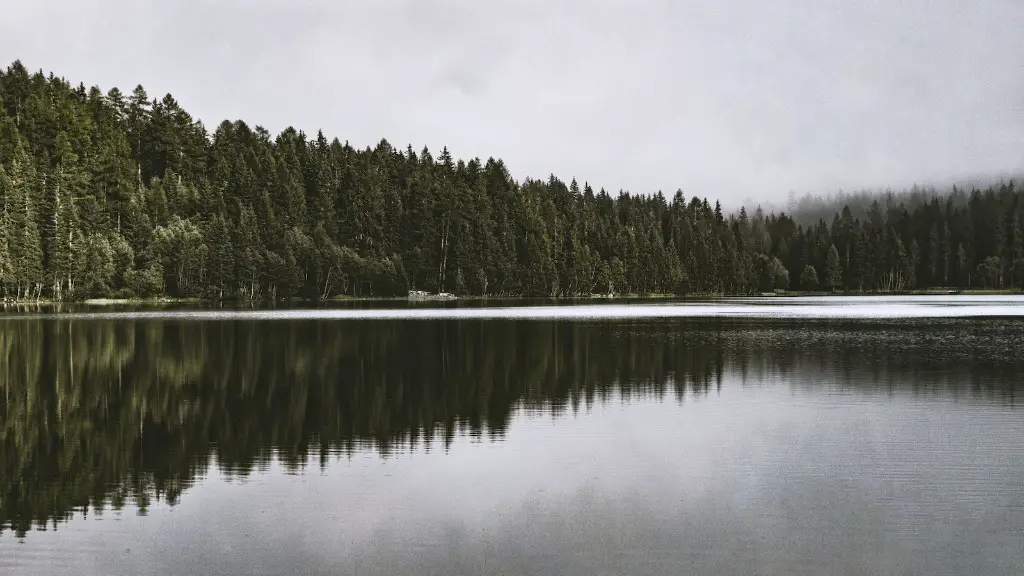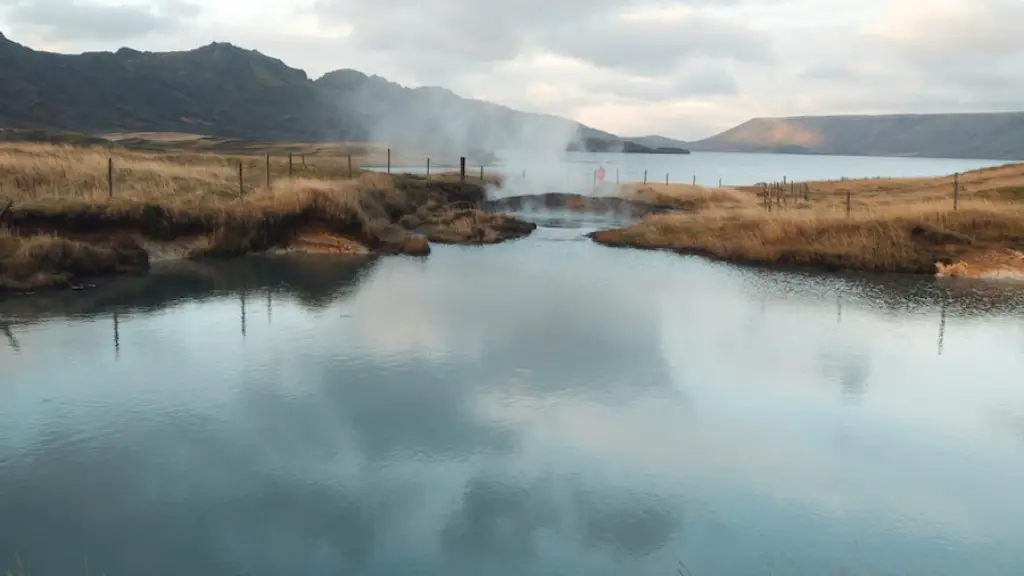Unique Features of the Lake Baikal
Lake Baikal is the world’s oldest, deepest and most impressive freshwater lake. Located in Siberia, Russia, it is the world’s deepest lake with a maximum depth of over 5,387 feet (1,641 meters). This enormous lake covers about 12,000 square miles and holds one-fifth of the Earth’s liquid fresh water. It is often referred to as the “Pearl of Siberia” and is a UNESCO World Heritage site. The lake is not only beautiful but it also has many unique features that make it unique and a marvel to behold.
One of the unique features of Lake Baikal is its age. It is believed to be 25 million years old, making it the oldest lake on Earth and the world’s fourth-largest by volume. Lake Baikal is also very deep, with a maximum depth of 5,387 feet. Scientists believe that the lake is still slowly deepening, with the current rate of deepening estimated to be anywhere between two and six feet per century.
Another unique feature of the lake is its clear water. The clarity of the water is what makes it look so breathtaking. The clarity of the water at Lake Baikal is also incredibly deep, with an average visibility of 40 meters (130 ft). This clarity of the water ensures that the many varieties of mammals, fish, and plants that inhabit the lake are easily seen and enjoyed from the surface.
Lake Baikal is not just special for its age and clarity. The lake is also compared to an inverted mountain, with a vast basin surrounded by high ridges and mountainous terrain. The lake also contains approximately 33 unique species of fish, most of which can only be found in the lake itself. The fish that inhabit the lake are world-renowned for their superior quality and flavor, making it a popular destination for anglers and gourmets alike.
The lake is also a prime destination for tourists. Tourists are drawn to its majestic beauty, unique culture, and locals. Many tourists take part in activities such as horseback riding, hiking, and wildlife viewing. Its iconic landmarks, such as the Olkhon island, attract thousands of people each year. Lake Baikal is also home to several species of marine mammals and birds, making it a great spot for birdwatchers, researchers and conservationists.
Impact of Climate Change on the Lake
The effects of climate change are beginning to take their toll on the lake as well. Changes in climate such as increased temperatures and changes in rainfall pattern are causing the lake to warm up, with recorded surface temperatures of up to 8 degrees Celsius (17.6 Fahrenheit). This increased temperature can cause problems for the unique species that only exist in Lake Baikal, making it more difficult for them to survive.
Increased temperatures can also cause an increase in water level due to the ice melting in the springs. This places a strain on the ecosystems of the lake as there is less oxygen available and an excess of algae and other pollutants. This can lead to the destruction of the unique species and exacerbate the negative impact of climate change on the lake.
The effects of climate change on Lake Baikal are also felt in more direct ways as well. For example, the villages around the lake have seen rising sea levels affecting their land, with flooding becoming much more common. The same is true for the surrounding forests and lakeside communities, where floods are becoming far more frequent as the temperature of the lake continues to rise.
As climate change continues to worsen, the effects on Lake Baikal will only become more severe. Short-term solutions such as reducing the use of fossil fuels, reforestation, and restoring the forests around the lake will help to keep the lake healthy in the future.
Environmental Preservation
The Lake Baikal area is being preserved by the Russian government and several conservation organisations, such as The Lake Baikal Foundation. The government has enacted strict regulations on pollution, commercial fishing and development. The Lake Baikal Foundation aims to raise awareness of the problems facing the lake and to promote sustainable development. The Russian government has also taken several steps, such as creating protected areas, restricting access and introducing new laws, in order to protect the lake.
In addition, the government has also provided funds for research and development projects aimed at better understanding the lake’s ecology. This has enabled researchers to investigate a variety of topics from water pollution, to fish abundance and water temperature. The government also sponsors a number of conservation initiatives and educational programs in order to promote the importance of environmental preservation.
The local communities play a pivotal role in protecting the lake as well. Buryat and other indigenous people have traditional beliefs about the lake and its importance that inspires them to take steps to preserve the lake. They have implemented a variety of initiatives in order to help protect the lake and its biodiversity. They have also been involved in research and development projects in order to better understand the ecology of the lake and the wider environment.
Ecotourism and Sustainable Development
The Lake Baikal area has become a popular destination for ecotourism. Tourists are attracted to the lake’s unique environment and the opportunity to experience the culture and wildlife of the region. This provides an economic benefit to the local communities and helps to encourage the preservation of the lake.
The Russian government is also encouraging sustainable development in the area by providing investment and support for business initiatives that aim to enhance the environment and the local ecology, while providing economic opportunities for the communities. These initiatives include sustainable forestry projects and eco-tourism initiatives, such as campsites, trails, zoos and wildlife sanctuaries. This enables tourists to visit the region without a negative impact on the environment.
The Lake Baikal area also benefits from a range of international projects and initiatives. The United Nations has declared Lake Baikal a World Heritage Site, and it is one of the Global Environmental Facility’s 33 high priority projects. This has resulted in increased funding and support for environmental protection and research, helping to ensure the lake’s preservation for future generations.
Economic Relevance
Lake Baikal is not only a valuable and important natural resource, but it is also of great economic importance. The lake is a key part of the Siberian economy; it is home to several commercial fish species and its clean water is used for drinking and industrial purposes. In addition, the lake’s unique environment and natural habitat attracts tourists from around the world and provides local communities with jobs and income.
The lake is also an important source of research and study, with universities and research centers carrying out projects to better understand the lake’s ecology and its role in the global environment. This has resulted in an increased level of investment in the lake and its surrounding area, which helps to ensure its preservation for the future. Finally, the lake can provide a great opportunity for sustainable economic development in the region, with initiatives such as ecotourism and eco-friendly projects providing economic benefits to local communities.
Conclusion
Lake Baikal is truly a marvel of nature. Its age, depth, clarity and unique features make it one of the most awe-inspiring natural wonders in the world. The lake’s economic and ecological importance cannot be overstated, as its preservation is essential for the wellbeing of both the local and global environment. The Russian government and local communities are taking active steps to protect and preserve the lake, but it is important we all understand the importance of protecting this natural wonder.

